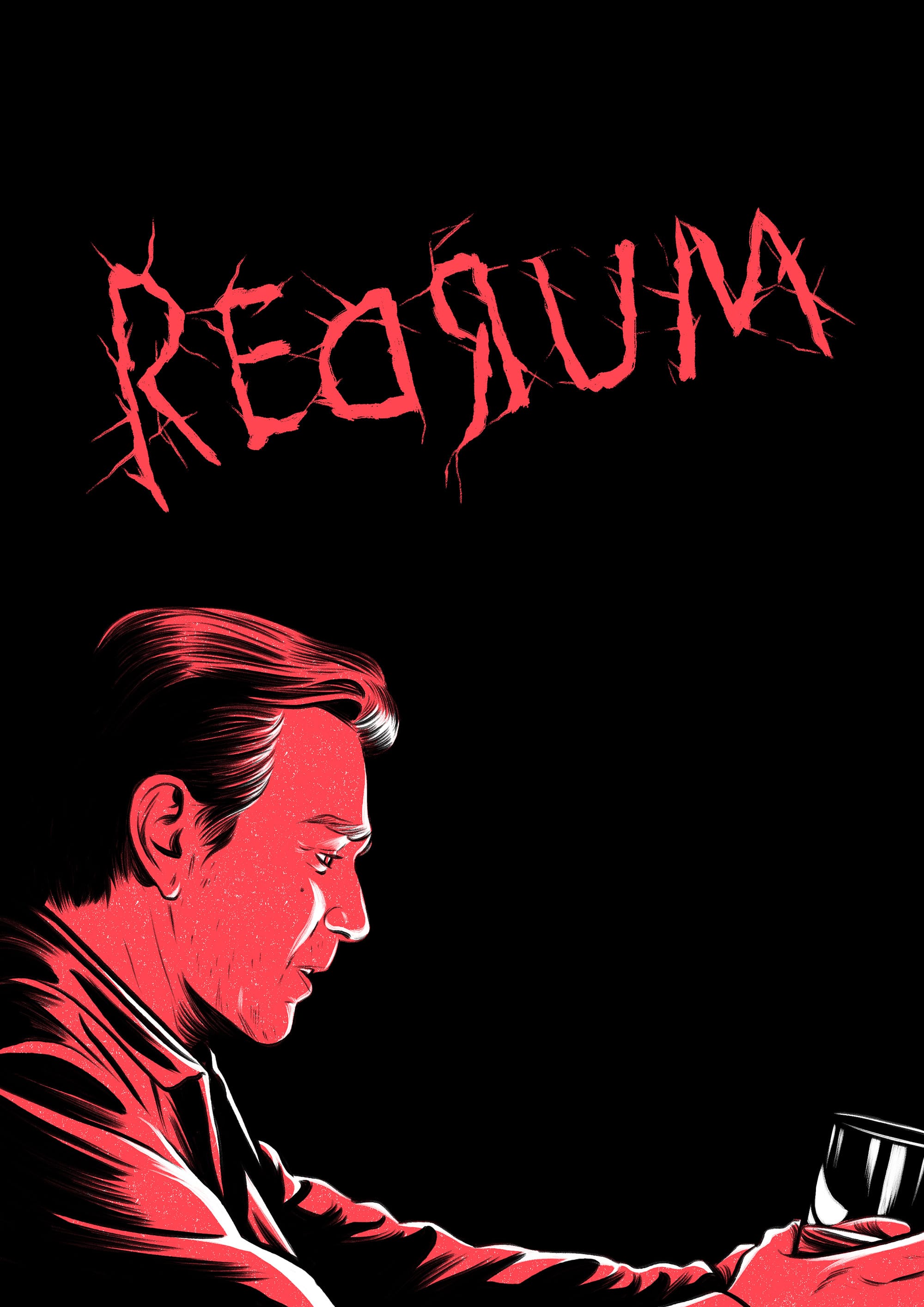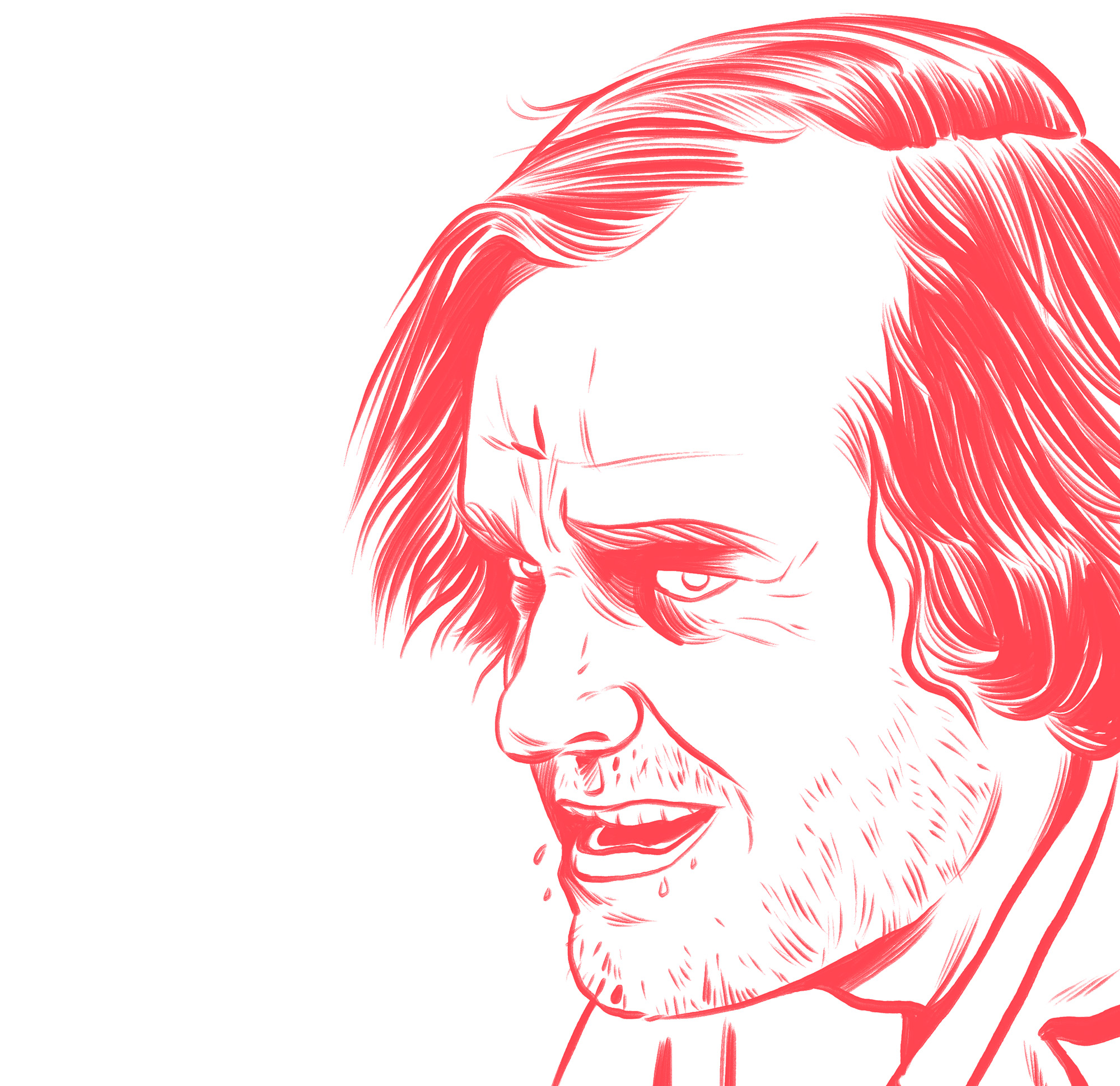The World’s A Hungry Place
On Flanagan, King, and Recovery

Doctor Sleep (2019) Dir. Mike Flanagan
Years after the traumatic events at the Overlook Hotel, Danny Torrance struggles with his own alcoholism and recovery in adulthood. His quest for a peaceful life is interrupted when he meets Abra, a child with the same ‘Shining’ he has long since learned to hide. Together, they find themselves pitted against a group of psychic vampires known as the True Knot.
“Man takes a drink. The drink takes a drink. And then the drink takes a man. Ain’t it so, Dad?” - Danny Torrance
I think this quote - sometimes attributed to Fitzgerald - is an old Irish proverb rather than a King/Flanagan original, but whatever the provenance, I think it might be the most efficient horror story ever told. It’s essentially The Shining in a sentence.
Doctor Sleep had an impossible job. How do you make a sequel to one of the most beloved and revered horror films of all time? How do you put yourself up for comparison to Stanley Kubrick? While at the same time making Stephen King, who famously hated Kubrick’s adaptation, happy?
The genius of Doctor Sleep is that it takes what could be irreconcilable problems: that of its legacy, the conflicting outlooks of two masters of their craft, and living in the shadow of what came before - and folds these into the thematic text of the film itself. The story is already about dealing with generational trauma and finding closure. The meta-textual layers just feed it.
The Shining is a masterpiece. Like most people, I like The Shining. But more so for the craft, the visuals, the mise-en-scène. On an emotional level, it has always felt empty to me. That’s largely by design, but I don’t really feel anything when I’m watching it. Maybe like is the wrong word. I admire it. I can understand why Stephen King had issues with it. The book was about King’s own battles with addiction and as such, Jack’s love for his family and redemptive final act were crucial to a story that was deeply personal to King. Kubrick’s vision, in contrast, is a bleak and uncompromising portrait of toxic masculinity, and domestic abuse.

Horror stories say a lot about the worldview of the author/creator and I find the disagreements between Kubrick and King particularly revealing.
“Man isn’t a noble savage, he’s an ignoble savage. He is irrational, brutal, weak, silly, unable to be objective about anything where his own interests are involved—that about sums it up. I’m interested in the brutal and violent nature of man because it’s a true picture of him. And any attempt to create social institutions on a false view of the nature of man is probably doomed to failure.” - Stanley Kubrick
Stanley Kubrick, the original doomer.
While I’m not immune to feeling like this at times, I just inherently disagree with Kubrick’s indolent and defeatist view of humanity. A lot of Kubrick’s films are very good at pointing out the problems with the world: with patriarchy, with colonialism, with white supremacy. But they do so with an almost bored shrug. As Maggie Mae Fish points out in her video essay (see below) about Kubrick: “description is not analysis.”
“There can be no horror if there isn't caring and love.” - Stephen King
While I disagree with this as an absolute, universal truth about horror, I think it’s a strong guiding principle to understanding the horror of Stephen King. If I’m being completely honest, I also think it’s the sort of horror that I’m most drawn to. I like a bit of nihilism in my horror now and again, but it’s the stories that offer a way out - and empathy - that stay with me.
Which, in a very roundabout way, brings me to Mike Flanagan.
Mike Flanagan’s work is deeply warm, earnest and human. In that way he’s a perfect fit for the optimistic horror of Stephen King. If The Shining, as a film, was about the traumatising impact of patriarchy, alcoholism and domestic abuse, Doctor Sleep is about recovery. In that sense alone, I think it makes a compelling case for its existence. A worthwhile bookend. One that I think we were all sceptical of when the film was first announced.
When Flanagan started working on Doctor Sleep, he was still drinking, though it had become “obviously problematic in my life”. I find it interesting that someone still in the throes of addiction could tell such a powerful story about sobriety, but I think it’s telling that he got sober during production.
In comedy, there’s the idea of explaining a joke being like dissecting a frog: you understand it better, but the frog is dead. In horror, I think the same is true. The more a horror conceit is explained, the less scary it is. The unknown is what’s terrifying. In that sense, it’s worth saying - Doctor Sleep isn’t very scary. There’s a lot of Stephen King lore here. In some ways, it’s the best X-Men film ever made. On this, your mileage may vary.
But when Doctor Sleep wants to horrify, it does it sparingly and effectively. By making you care about every character, by filling the screen with kindness and warmth and humanity, you feel it when someone dies. This is where Flanagan excels. Across his work, his characters feel lived in and three dimensional. I root for them. I want them to be okay. This is where horror lives. King understands this.
One sour note about the film’s antagonists: the True Knot. It may not be intentional but a nomadic group travelling in caravans being portrayed as child-snatching villains feels like it’s at least borrowing from racist tropes about roma and traveller communities. I’ve not seen much written about this so maybe I’m being overly-sensitive.
The cast are uniformly excellent (Rebecca Ferguson doing the most!) but I want to take a moment to say I’m a big fan of Ewan McGregor in his Broken Era. Give me Broken Renton, Broken Obi-Wan Kenobi, Broken Danny Torrance… Give me Broken Ewan, as Danny the orderly, comforting a dying patient and saying: “We don’t end Charlie. I know that for certain. I don’t know much else, but I know that we don’t end.”
I could probably write several essays about Flanagan’s work and what his various TV shows have meant to me through the years, but I’m worried about making this entry too long already. Because if you’re going to watch Doctor Sleep, I really shouldn’t be taking up your time here - the film is LONG. The Director’s Cut clocks in at 3 hours which is double the length that most horror films are (and, let’s face it, all films should be). The only thing I’ll say is: I think it’s worth your time and when it gets started, you don’t notice the length.
When it came out, Doctor Sleep bombed in the cinemas. I think people are starting to appreciate it now, but it still feels underrated. If you skipped it assuming it’s just another cynical franchise sequel, I’d urge you to give it a try.
“I never told you this, but I sobered up while we were shooting Doctor Sleep, and I don’t think I would have done it without your words. Living in that story, and marinating in the concepts of recovery and redemption made it possible. I just want to thank you.” - Mike Flanagan (to Stephen King)
Where can I watch it in the UK?
You can rent it for £3.49 on YouTube/Google/Amazon/Apple or buy the Director’s Cut for £8-10 on YouTube/Google/Amazon.
Pairs well with
I’m going to make an exception just this once and recommend a TV show instead of a film. If you’ve yet to dig into Mike Flanagan’s collection of limited series on Netflix, you should treat yourself to Midnight Mass (2021, Dir. Mike Flanagan, available to stream on Netflix). It’s the one series by Flanagan that isn’t an adaptation and is a deeply personal project he’d clearly been tinkering with for a long time (the protagonist in his 2016 film Hush was writing a book called Midnight Mass).
As with Doctor Sleep, it’s a film about guilt, addiction, and recovery. But it’s also where Flanagan gets to really dig into his conflicting feelings about religion. The film interrogates The Bible as a horror story and the ways in which dogma can be weaponised. As always, Flanagan’s thematic interests never get in the way of his characters and it remains a touching, heartfelt, and human story at the centre.
But if you’re looking for a film to pair Doctor Sleep with - Gerald’s Game (2017, Dir. Mike Flanagan, available to stream on Netflix) - Flanagan’s first (and broadly successful) attempt at adapting King, makes for an interesting comparison.
Further Reading
- Fangoria on Alcoholism and Recovery in The Shining and Doctor Sleep. Some interesting thoughts here about the ways that the 12 Steps of AA are incorported into Doctor Sleep.
- Daniel Netzel’s video essay on how Doctor Sleep reconciles King and Kubrick is great.
- Script Apart interview Flanagan on how he wrote the screenplay for Doctor Sleep here. They also did a great interview with him for Midnight Mass. I found both interviews illuminating.
- An excellent Skip Intro video about the way Mike Flanagan - once an editor for RuPaul’s Drag Race - edits horror.
- Maggie Mae Fish’s video about the Myth of Auteur Theory - comparing Kubrick’s approach to filmmaking with Lynch - is essential viewing. Especially in regards to Kubrick’s abusive treatment of Shelley Duvall.
- Kings of King - a podcast discussing the adaptations of Stephen King - on Doctor Sleep.
- Gourley and Rust’s current season of their cosy, rambling horror podcast is all about Mining The Shining.
Other Recommendations
- If you’re interested in seeing The Shining in the cinema this October, and you’re in the UK, the original cut is playing at various Picturehouses on the 31st.
- If you’re in the mood for more haunted hotel content, Daisy Johnson’s BBC radio series The Hotel is excellent. Fifteen short stories set in The Hotel throughout its gruesome history.
- Mike Flanagan’s latest adaptation - Edgar Allen Poe’s The Fall of The House of Usher - is dropping on Netflix on October 12th. Hooray for horror for sensitive souls who like a little cry with their terror (raises hand)!
- This substack was mainly set up to encourage myself, and anyone else reading it, to really embrace October and the beginning of autumn. To give in to the dark and cold nights and get cosy under a blanket, with a warm drink, and a spooky story. With this in mind, if you’d like someone to read you Poe’s original short story, you could do worse than this.
